Pagination, Sorting & Filtering
Pagination, sorting and filtering are essential techniques used in web development to improve user experience, increase site performance and make data management easier
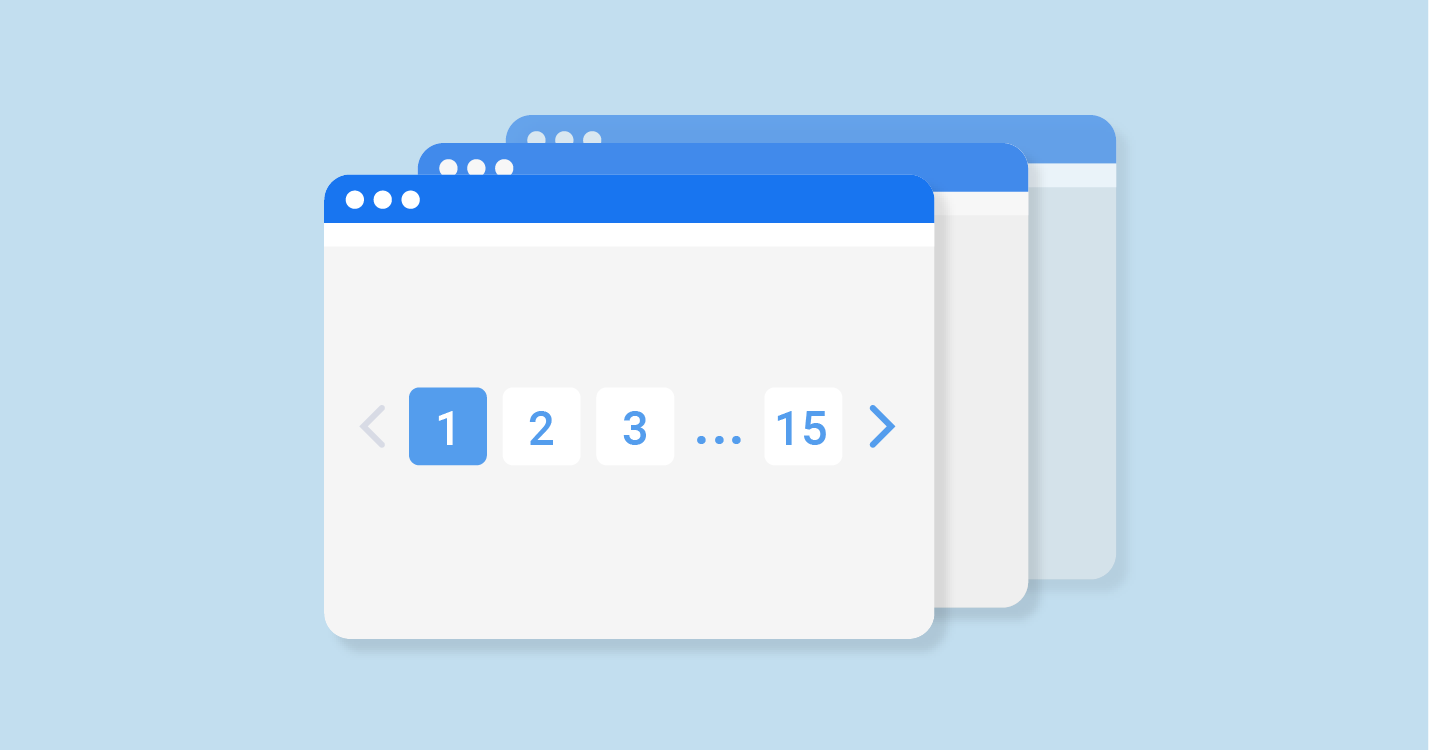
- Introduction to Pagination, Sorting & Filtering
- The Benefits of Pagination, Sorting & Filtering
- Implementing Pagination, Sorting & Filtering in Express
- Class Resource(s)
- Conclusion
Introduction to Pagination, Sorting & Filtering
Pagination, sorting and filtering are essential techniques used in web development to improve user experience, increase site performance and make data management easier.
Pagination is a process of dividing a large set of data into smaller chunks and displaying them on multiple pages.
Sorting is the process of organising data in a logical order
Filtering is the process of retrieving specific data from a large set of data.
The Benefits of Pagination, Sorting & Filtering
Improved User Experience
Pagination, sorting and filtering all help to improve the user experience on a website. By dividing data into smaller chunks, users can easily navigate through the site and find the information they are looking for. Sorting data in a logical order makes it easier for users to access relevant information quickly. Filtering enables users to quickly find information that meets their search criteria.
Increased Site Performance
Using pagination, sorting and filtering can also help to improve the performance of a website. By displaying only the relevant data, the size of the data set being processed is reduced and this can improve the loading times of a web page.
Similarly, sorting and filtering can help to reduce the amount of data being processed and thus improve the performance of the website.
Easier Data Management
Pagination, sorting and filtering can also help to make data management easier. By dividing the data into smaller chunks, it becomes easier to manage the data and make changes when needed.
Sorting the data in a logical order makes it easier to find specific information quickly. Filtering the data can also help to quickly find the data that needs to be managed.
Implementing Pagination, Sorting & Filtering in Express
Let's start by initialising a new node project using the command: npm init --y
Now we can install our packages with the command below:
npm install express mongoose dotenv
Next, we can create the server.js file from our terminal using: touch server.js
Now that we have the server.js file created let us add some boilerplate code:
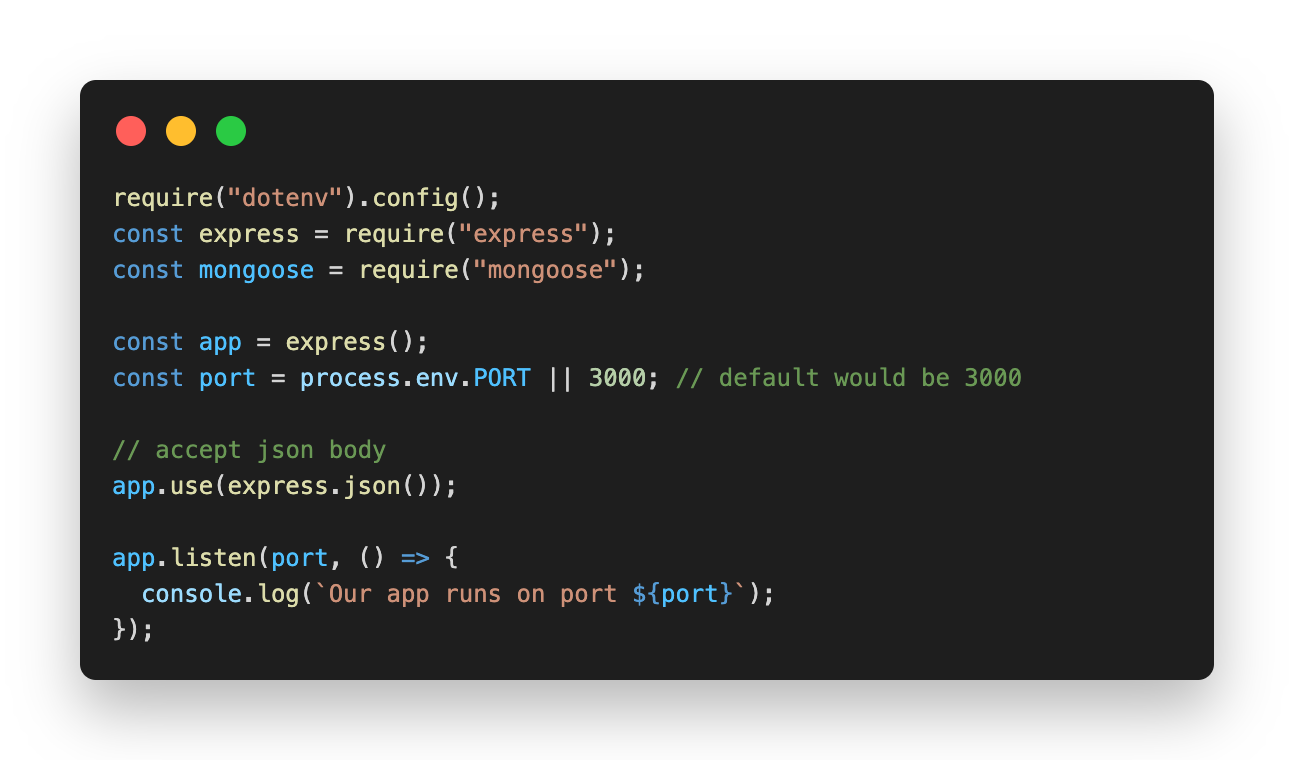
Next we will configure our database using mongoose:
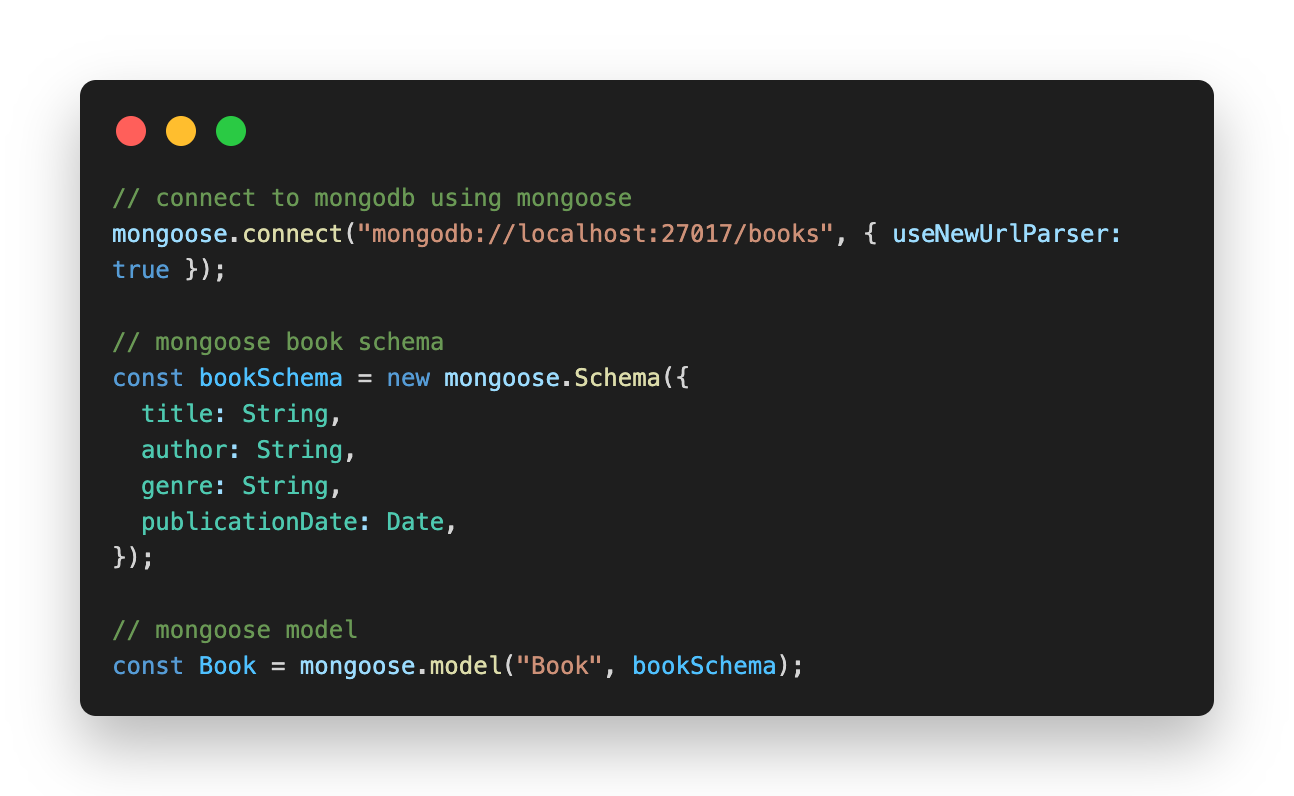
Now that we have our mongoose schema and model defined, let's create the end points to create and fetch our books:
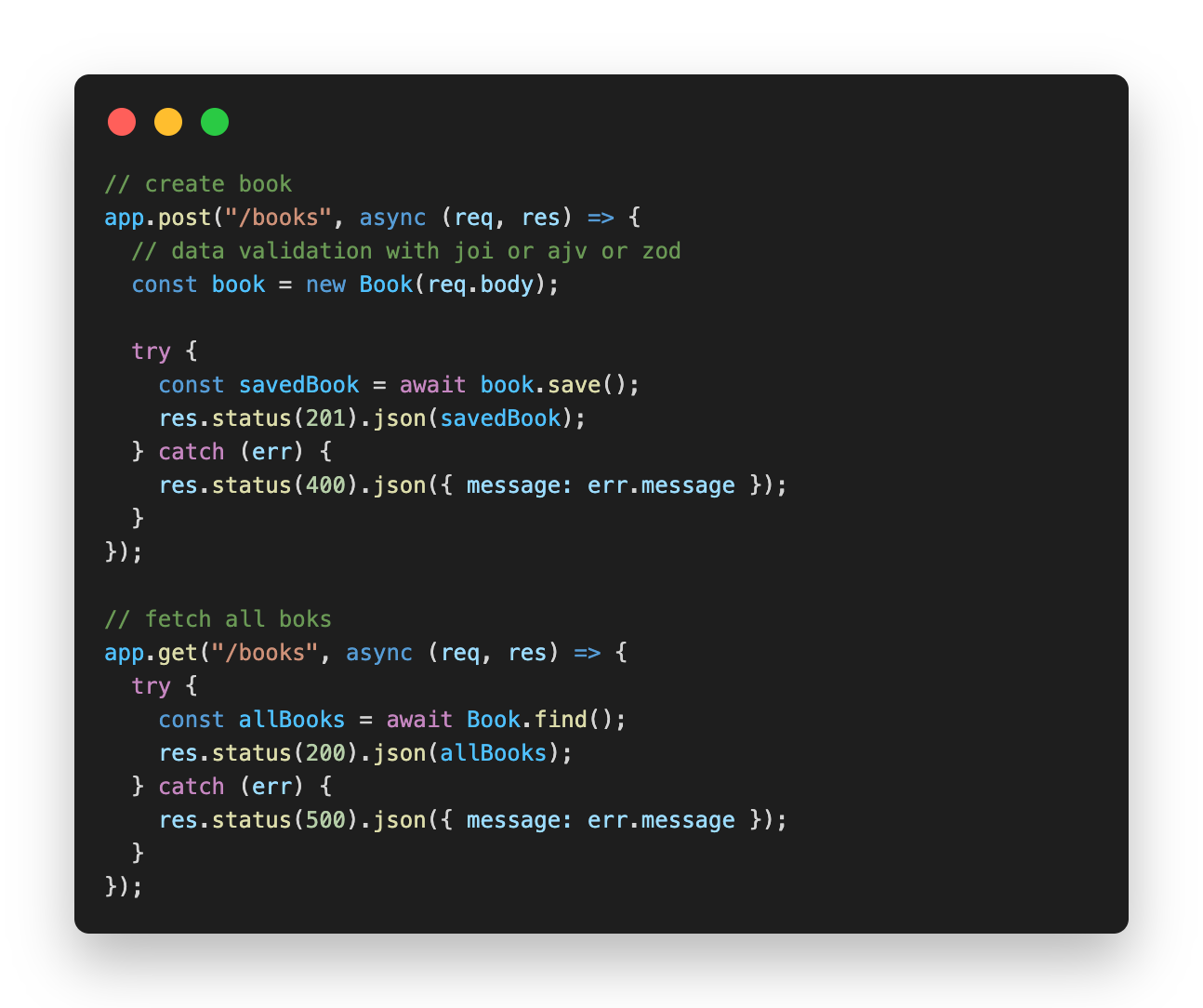
Now let's look at our code for filtering our data via a different endpoint:
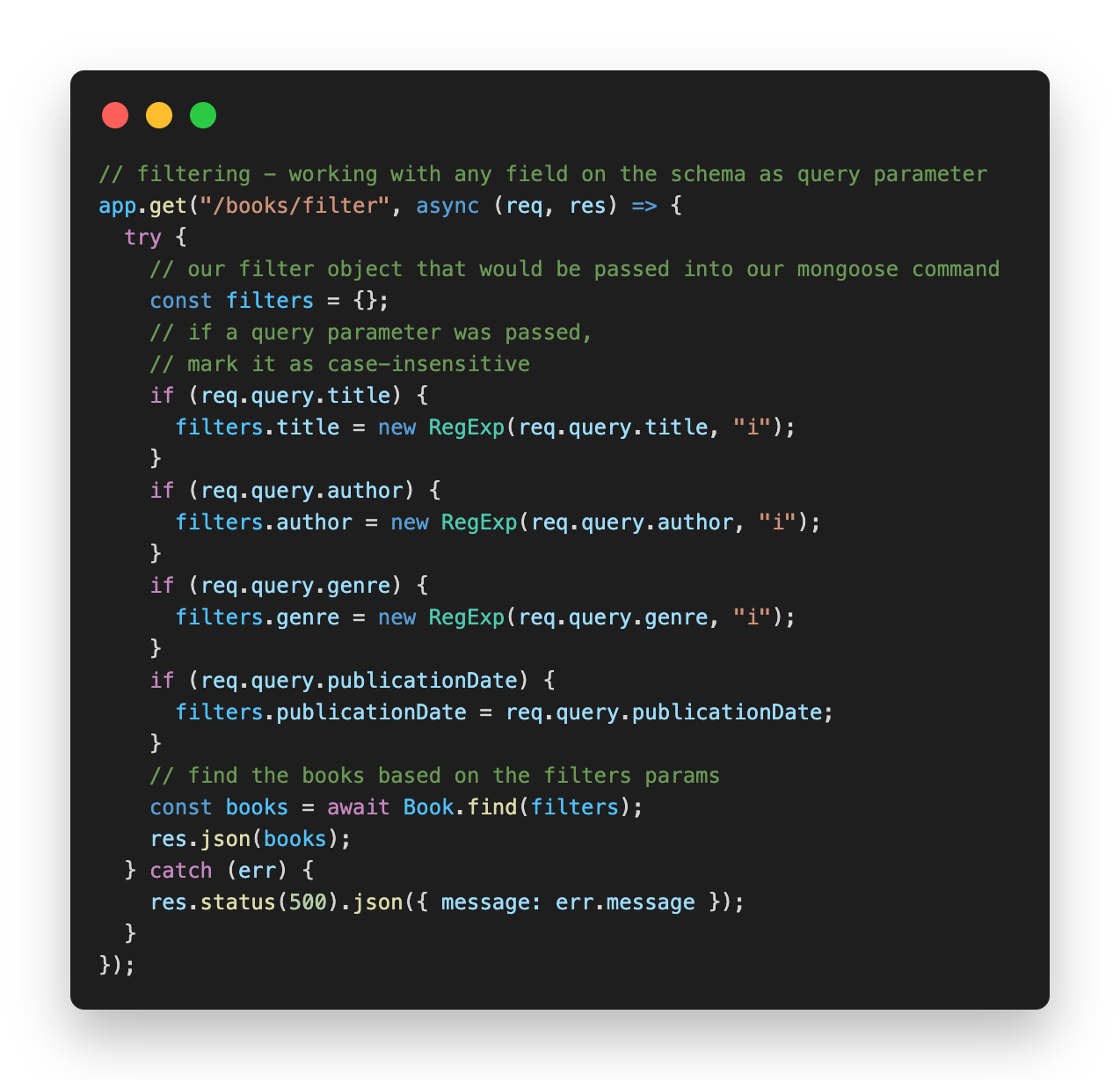
Next we will look at the codebase for pagination via a different route:
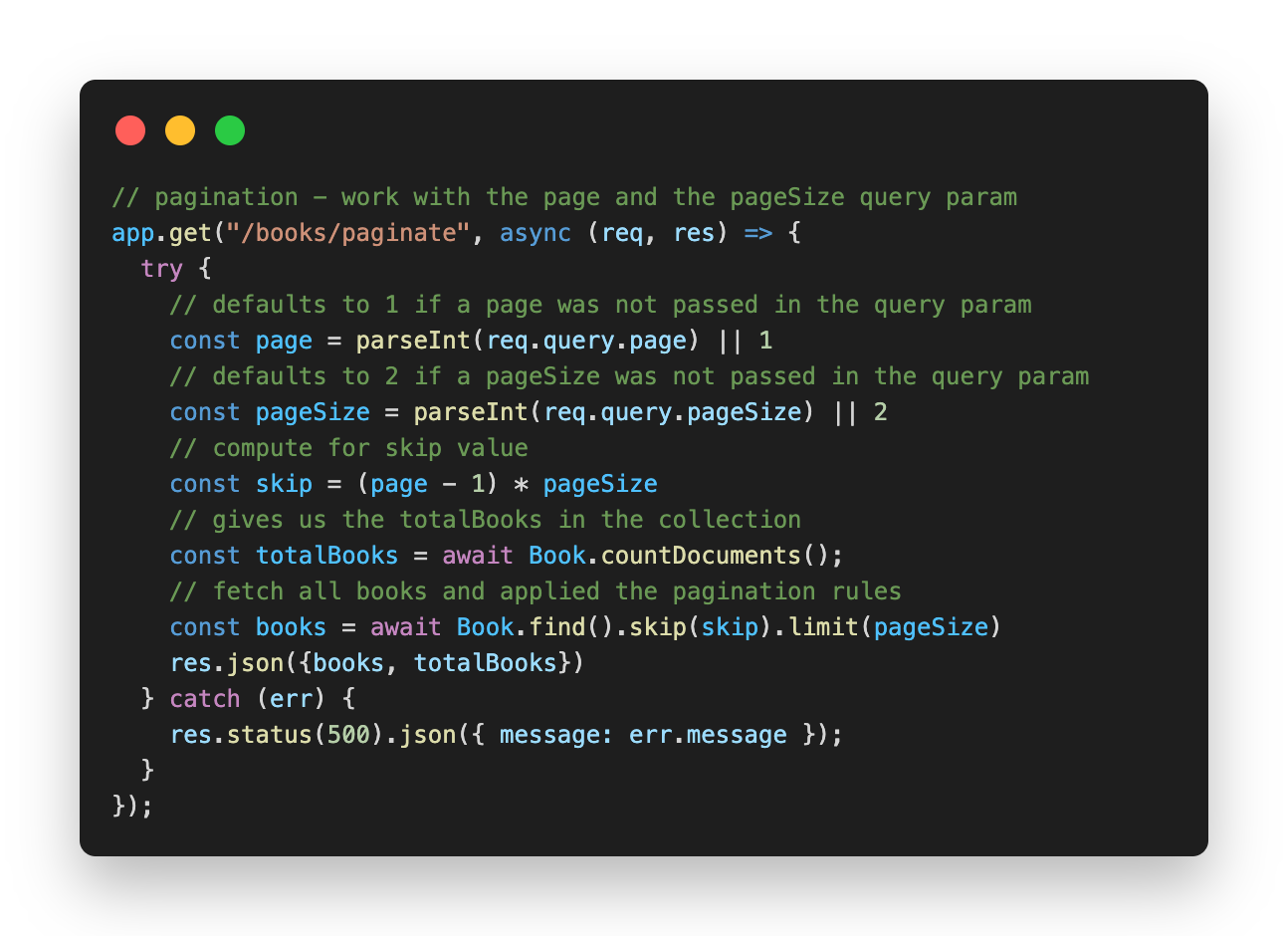
Finally let's look at the codebase to sort our records using the sort field and sort order
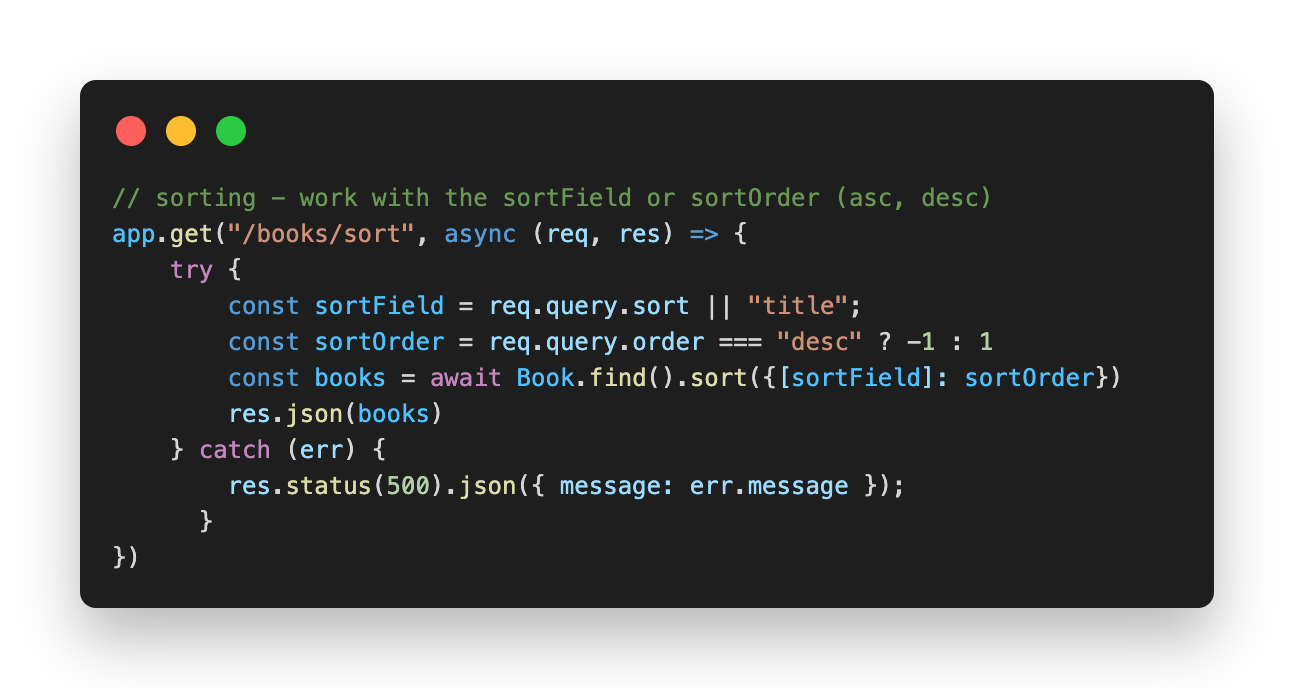
Here's an example of filtering, sorting and paginating in a singe request:
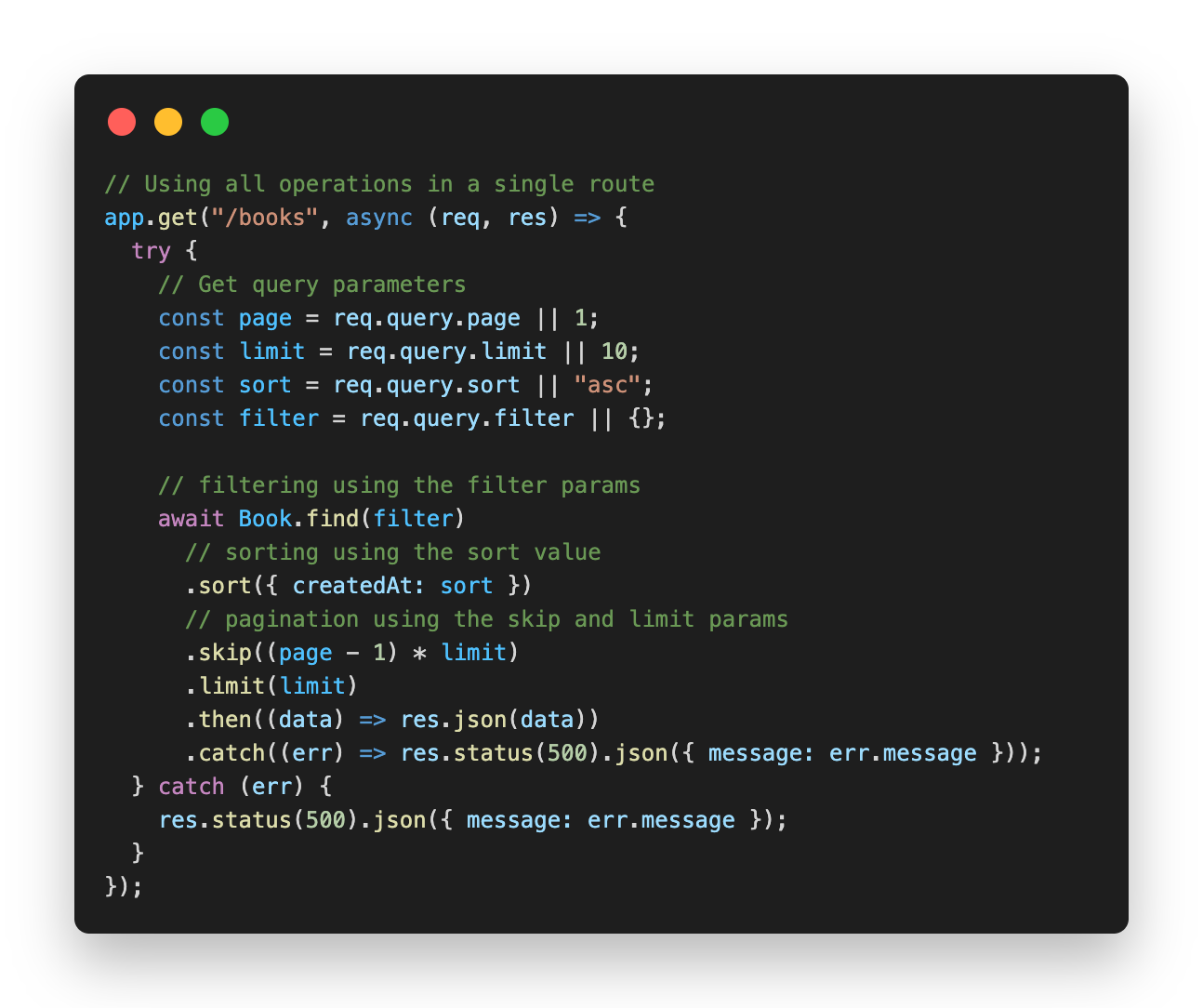
Watch the class resources if you need more explanation as to how the code works. You can also download/clone the codebase from the github using the repository link below.
Class Resource(s)
Clone Source Code from Github
Conclusion
Summary of Pagination, Sorting & Filtering
Pagination, sorting and filtering are three essential techniques used in web development to improve user experience, increase site performance and make data management easier.
Pagination is the process of dividing a large set of data into smaller chunks, sorting is the process of organising data in a logical order and filtering is the process of retrieving specific data from a large set of data.
Advantages of Pagination, Sorting & Filtering
The advantages of pagination, sorting and filtering include:
- Improved user experience, increased site performance and easier data management. By dividing data into smaller chunks, users can easily navigate through the site and find the information they are looking for.
- Sorting data in a logical order makes it easier for users to access relevant information quickly. Filtering enables users to quickly find information that meets their search criteria.
- Additionally, using pagination, sorting and filtering can also help to improve the performance of a website. By displaying only the relevant data, the size of the data set being processed is reduced and this can improve the loading times of a web page.
- Similarly, sorting and filtering can help to reduce the amount of data being processed and thus improve the performance of the website.
- Pagination, sorting and filtering can also help to make data management easier. By dividing the data into smaller chunks, it becomes easier to manage the data and make changes when needed.
- Sorting the data in a logical order makes it easier to find specific information quickly. Filtering the data can also help to quickly find the data that needs to be managed.





